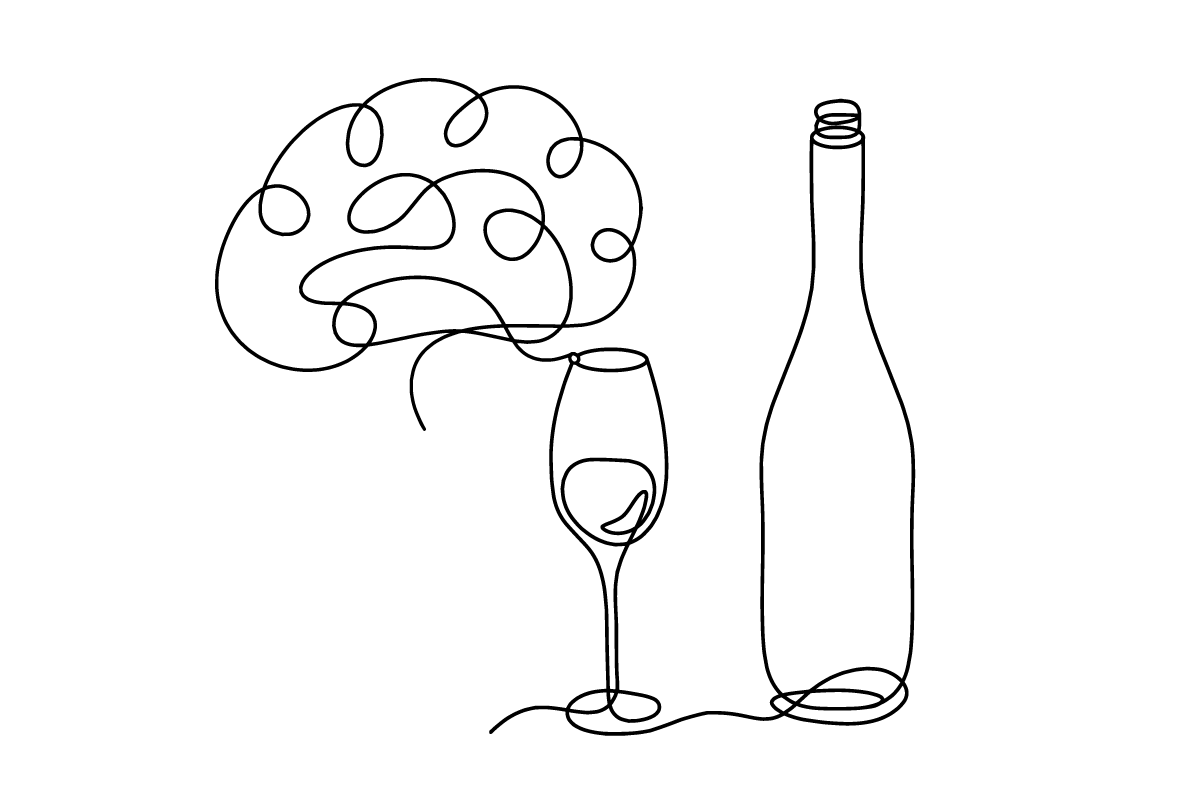Drinking alcohol has been widely known to increase the risk of developing a number of chronic health conditions like liver disease, heart disease and high blood pressure. It’s also known to impact brain function. So is it safe to drink in moderation?
“Alcohol affects how your brain works, and that’s important to consider when you are deciding whether you want to drink or not,” says Dr. Judith L. Overton, a psychiatrist and medical director at BlueCross BlueShield of Tennessee.
How alcohol impacts your brain
Dr. Overton: You probably know that a drink or two can make you feel and act differently. That is largely due to its interaction with your brain.
Alcohol affects how your brain communicates
Alcohol alters how neurotransmitters in your brain function. Neurotransmitters are the chemicals that carry messages from one neuron to another. By disrupting that communication, alcohol can slow your reaction time, alter your physical movements, lower your inhibitions and affect your judgment. You might slur your speech or have trouble walking or coordinating your movements.
Alcohol affects your memory
Alcohol use affects a part of your brain called the hippocampus, which helps govern your memory and reasoning. People with alcohol use disorder are more likely to eventually develop some cognitive impairment.
Alcohol changes brain structure
Research suggests that even one drink per day could change the structure of your brain. Even light-to-moderate alcohol use was associated with changes to the brain, including a reduction in overall brain volume. Over time, drinking can shrink the gray matter in your brain, which can affect your cognitive, emotional and motor functions.
Researchers found that the changes became more significant as people drank more alcohol. Going from 1-2 drinks was associated with changes that were similar to 10 years’ worth of aging in the brain.
Is one drink too much?
Dr. Overton: Alcohol is normalized in our culture. It’s almost everywhere you look—restaurants, concerts and other entertainment venues. But that doesn’t mean that you should always partake.
Experts generally recommend moderation when it comes to alcohol consumption for people who drink. According to the national dietary guidelines, that’s one standard drink for women and two for men per day—or less. A standard drink is:
- 1.5 ounces of 80-proof liquor
- 5 ounces of wine
- 12 ounces of beer
Some reports have said moderate drinking was considered safe and that red wine was even good for your heart. However, more recent studies conclude that there is no “safe” level of alcohol consumption.
Analyze your own alcohol use
Dr. Overton: You may be wondering if you’re drinking too much. If so, it may be time to take a good look at how much—and how often you’re drinking. If you regularly turn to alcohol to wind down after work, you might want to look for alternatives, and save the alcoholic drinks for special occasions.
How much you drink may become even more important as you get older. As you age, your body begins to metabolize alcohol slower, which increases the risk of liver damage. Also, your reflexes begin to slow, and alcohol can compound that effect. It might be worth considering whether it’s worth it to drink alcohol as you age, especially if you have concerns about your cognitive function.
WellTuned: how to gauge your alcohol use
Seek help if you need it. Consider these resources:
- Your primary care physician (PCP)
- Your company’s Employee Assistance Program (EAP)
- Substance Abuse and Mental Health Services Administration website or call 1-800-662-HELP(4357)
“We continue to learn more about how alcohol affects on our brains and bodies,” says Dr. Overton. “What we do know is that if you If you do choose to drink, moderation is best. At the end of the day, maybe one’s enough if you absolutely decide you want to—and preferably not every day.”
More from Dr. Overton on WellTuned
Get more information about specific health terms, topics and conditions to better manage your health on bcbst.com. BlueCross BlueShield of Tennessee members can access wellness-related discounts on fitness products, gym memberships, healthy eating and more through Blue365®. BCBST members can also find tools and resources to help improve health and well-being by logging into BlueAccess and going to the Managing Your Health tab.





